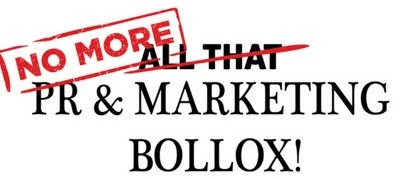

Like so many other industries influenced by the rapid advance of digital tools and other technologies, the manner in which marketing professionals approach their responsibilities is remarkably different, even when compared to just a decade ago. The prevailing strategies of yesteryear -- a great deal of which relied less on data and more on gut instinct -- are especially anachronistic relative to the increasingly sophisticated approach largely based on the principles of the scientific method.
This is especially true in the world of digital marketing, as online marketers have immediate access to a wealth of relevant data, as well as the additional benefit of being able to measure just about every factor that might influence the impact of a marketing campaign in one way or another. Of course, it is not enough to merely review the available data or measure various aspects of a campaign; marketing professionals must understand that testing -- along with the proper application of the scientific method -- is the true key to mastering the science of online marketing.
Applying the Scientific Method in Marketing
The scientific method is one of those terms that everyone seems to be more or less familiar with, yet few are able to define or apply the principles of the process without the benefit of a quick refresher on the subject. With apologies to those whose understanding of the scientific method never faded from memory, let’s take a moment to break down the steps involved in the scientific method before discussing how each step can be applied to marketing:
- Identify or otherwise define a problem
- Conduct research and collect any relevant data through observation and experimentation
- Develop hypotheses based on research and data
- Validate (or invalidate) hypotheses through testing
Obviously, this is a fairly simplistic version of the scientific method, and it is worth noting that each of the four steps as outlined above could easily be expanded to include a number of additional steps beyond those listed. That being said, defining the scientific method in this way is perfectly suitable for our purposes in discussing how to apply the scientific method for use in developing or analysing an online marketing campaign.
Online Marketing and the Scientific Method: A Step-by-Step Overview
The first step, “identify or otherwise define a problem,” essentially demands that the marketer considers what he or she hopes to achieve through the use of a marketing campaign or a specific marketing strategy. Since the word “problem” carries a negative connotation, perhaps it is better to identify or define a specifically desired outcome to be achieved through the development of a marketing campaign.
With the desired outcome clearly identified or defined, marketers can then begin the process of collecting data or conducting research. This might involve a review of data collected during a previous marketing campaign, but it should also include conducting research regarding other critical aspects, including the available budget or the kind of tools that might be most ideal for achieving the desired outcome as outlined in the previous step.
Testability is the key to ensuring that any hypothesis is sound. After a thorough review of the available data and research, marketers should then determine if there is any indication of a predictive pattern or link worthy of a hypothesis. Once the marketer has crafted several hypotheses, they can then move on to the process of testing each hypothesis in order to determine its validity. When testing a hypothesis, it is important to ask each of the following questions to ensure the greatest possible level of accuracy:
- What is the reason for performing the test?
- Is there other research available?
- What are the expectations?
- Is there a control?
- Are there any outside variables to consider?
- What is the best method for analysing the results?
- Is the test considered a success?
Each step of the scientific method is undeniably important, but perhaps none more so than the testing of each hypothesis. The testing process is the most critical step in determining, among other things, which marketing tools are most likely to deliver the desired outcome of the campaign. In the online marketplace, marketing tools used in SEO, industry targeting, and metrics analysis are generally recognised as universal, but the manner in which these tools are utilised within a campaign must still be based on solid scientific principles in order to ensure the greatest level of efficiency and efficacy.
Tip #23: When it comes to your business’ marketing, remember these four, crucial steps. Identify the problem, conduct research to acquire the necessary data, formulate a hypothesis based on that data, and then validate your hypothesis by testing it! Identify, research, hypothesise and test!
If you would like to learn more about marketing, please see these blogs below:
What the hell is Inbound Marketing and why should you care?
If you'd like to receive the latest 'All that PR & Marketing Bollox...Explained!' blogs straight to your inbox every week, you can subscribe below:
Reed Gusmus is the award-winning director of marketing at QASymphony, a QA tools and software testing company located in Atlanta, Georgia. As a marketing leader, Reed believes in cultivating a collaborative professional environment that emphasises creativity as well as technical expertise.



Submit a Comment